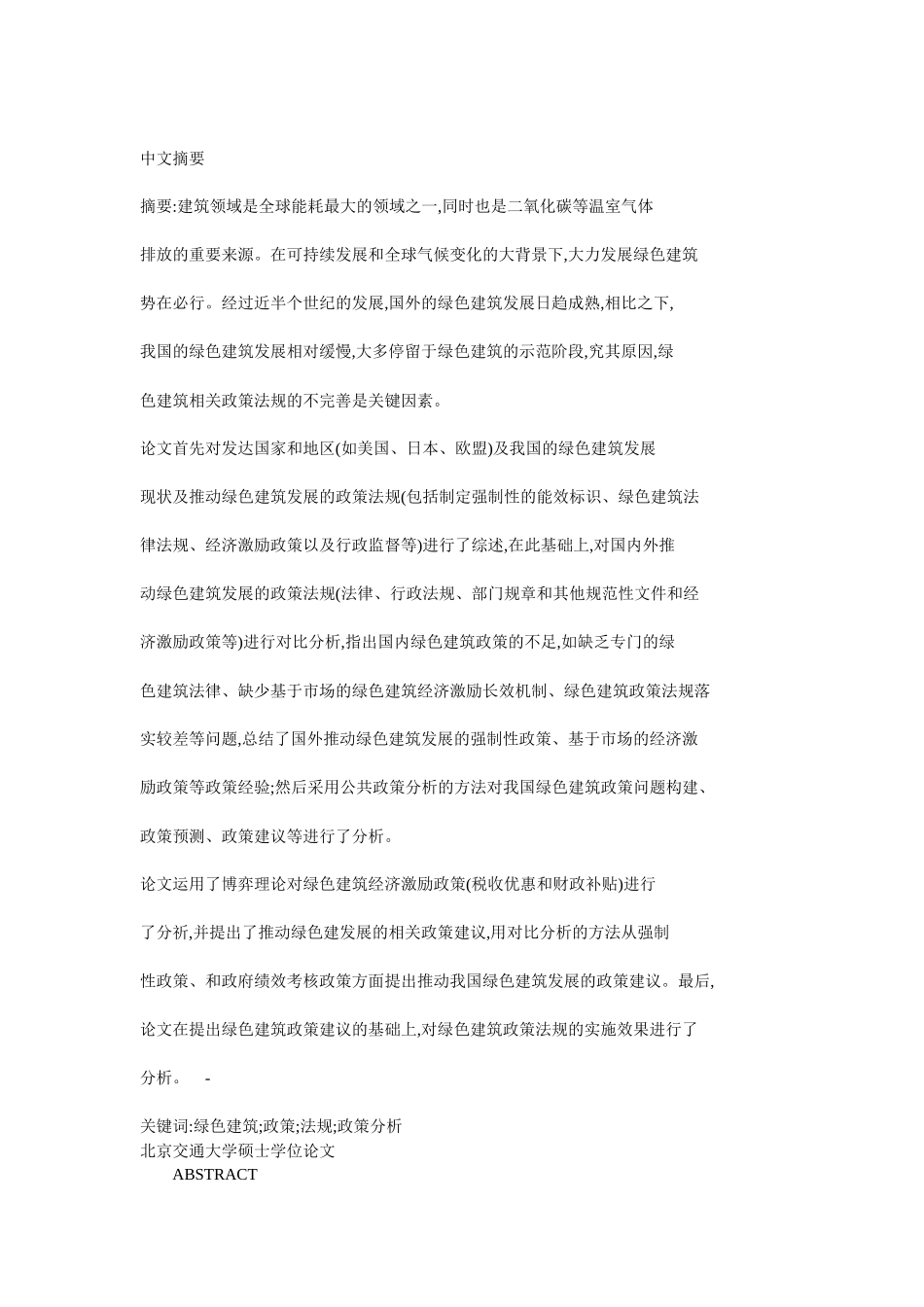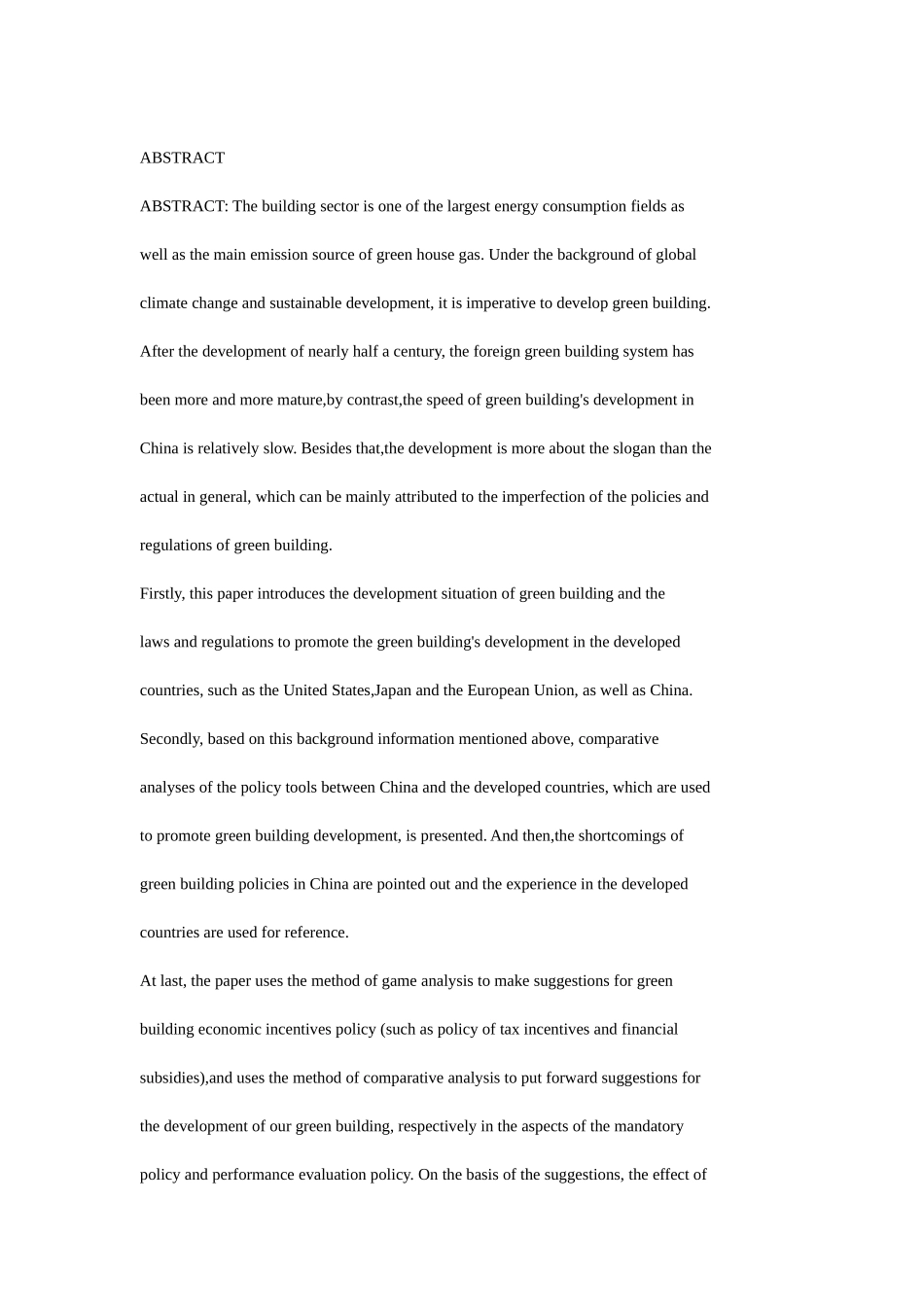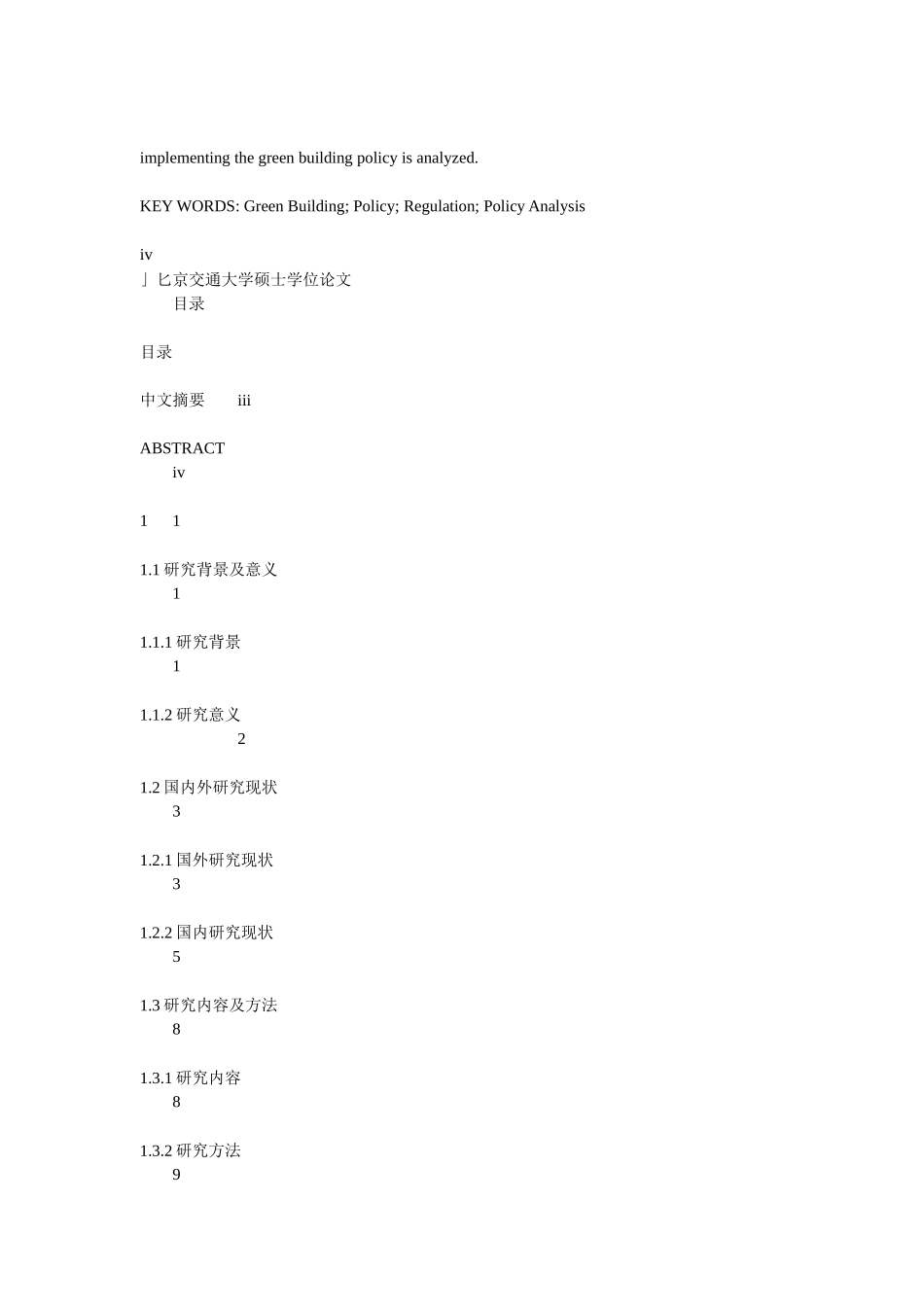中文摘要摘要:建筑领域是全球能耗最大的领域之一,同时也是二氧化碳等温室气体排放的重要来源。在可持续发展和全球气候变化的大背景下,大力发展绿色建筑势在必行。经过近半个世纪的发展,国外的绿色建筑发展日趋成熟,相比之下,我国的绿色建筑发展相对缓慢,大多停留于绿色建筑的示范阶段,究其原因,绿色建筑相关政策法规的不完善是关键因素。论文首先对发达国家和地区(如美国、日本、欧盟)及我国的绿色建筑发展现状及推动绿色建筑发展的政策法规(包括制定强制性的能效标识、绿色建筑法律法规、经济激励政策以及行政监督等)进行了综述,在此基础上,对国内外推动绿色建筑发展的政策法规(法律、行政法规、部门规章和其他规范性文件和经济激励政策等)进行对比分析,指出国内绿色建筑政策的不足,如缺乏专门的绿色建筑法律、缺少基于市场的绿色建筑经济激励长效机制、绿色建筑政策法规落实较差等问题,总结了国外推动绿色建筑发展的强制性政策、基于市场的经济激励政策等政策经验;然后采用公共政策分析的方法对我国绿色建筑政策问题构建、政策预测、政策建议等进行了分析。论文运用了博弈理论对绿色建筑经济激励政策(税收优惠和财政补贴)进行了分祈,并提出了推动绿色建发展的相关政策建议,用对比分析的方法从强制性政策、和政府绩效考核政策方面提出推动我国绿色建筑发展的政策建议。最后,论文在提出绿色建筑政策建议的基础上,对绿色建筑政策法规的实施效果进行了分析。-关键词:绿色建筑;政策;法规;政策分析北京交通大学硕士学位论文ABSTRACTABSTRACTABSTRACT: The building sector is one of the largest energy consumption fields aswell as the main emission source of green house gas. Under the background of globalclimate change and sustainable development, it is imperative to develop green building.After the development of nearly half a century, the foreign green building system hasbeen more and more mature,by contrast,the speed of green building's development inChina is relatively slow. Besides that,the development is more about the slogan than theactual in general, which can be mainly attributed to the imperfection of the policies andregulations of green building.Firstly, this paper introduces the ...


